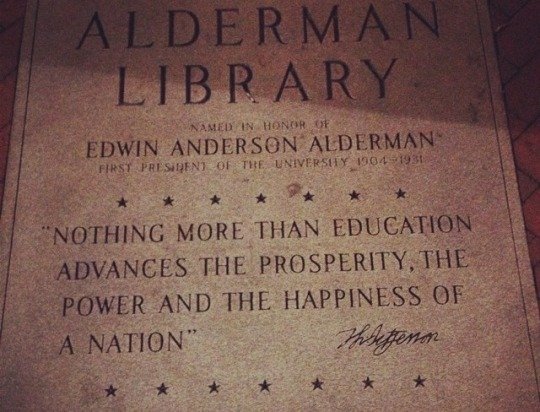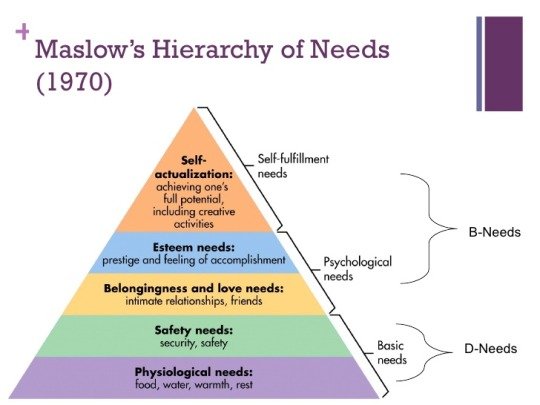And we know,
Money can solve world problems. Any hundreds of millions of amounts of dollars can solve numerous world issues whence aptly infrastructured. In a Facebook post a few weeks ago, on the news-feed was listed that the footballer Pogba signed a $150M contract with Manchester United. Then I saw comments on how an African country that same month had sought financial assistance for their 14+ million populace, asking for a similar amount Pogba signed for in his lone contract. That had me thinking: how much would it take to solve the turmoil found in the ghettos of America, in the slums of Africa and South America, in the occupied territory of the Gaza Strip? And yet, how void would such funding become after x-amount of years due to insufficient infrastructure serving as the basis unto which the socio-economy’s prosperity is founded upon. .
And what about those who accumulate wealth, spend their riches, and live extravagantly? In my opinion, money like water will always resurface itself in the cycle of energetic abundance. Whatever water seeps from the kitchen faucet is led down through the pipes, traversing itself through more pipes, reaching ponds I imagine, whereupon it takes on the state of being refurbished, absorbed, and is poured-down again by the clouds which is then soaked by established water infrastructure systems, thus then presented in quality to flow out through the kitchen faucet again. “Water wasted” is only money wasted. And yet money is neither finite, for the cycle of cash-flow based upon supply and demand makes money available to any and all who know the law of attracting it to themselves within the economic framework of supply and demand; a tangible benefit of Capitalism (and yet ironically such same infrastructure to maintain status quo). However, such is the surface-level upon which the wealthy afford themselves to spend money on absurd luxuries whilst poor men and women sleep in the streets; the difference between the poor man and the millionaire is the will-power (or lack-thereof) to create a cash-flow into one’s pocket. At a deeper level, this difference represents itself based upon circumstance, environment, and social cues; yet such isn’t much of a worthy explanation when free libraries and the internet abound in today’s American society; there is no reason why any man/woman should not be able to try to create an income for themselves in our present day and age. To say they tried but gave up is also inexcusable. And yet mental sickness too is a topic of discussion in and of itself, one in which I will not touch for this post.
Globalization as a concept is a great idea. But as an implementation you create a lot of question marks. Are we on the right or the wrong track. The right track is globalization where everyone benefits. A bad is one win and one lose (the rich countries take over poor countries is a bad globalization). At the moment, globalization is mostly bad - it is a threat of controlling the economy. It is a monopolization. The answer is why don’t we have rules - for when big countries go to poor countries - how shall they behave, how do they not exploit the people, how do you create abundance for the poor country. You do not exhaust the resources. There should be rules to the use of resources. The resources are for everybody to use efficiently. You have to create globalization “police”. In our current globalization there is anarchy. There must be a system. We have to share this planet together. Well meaning people are everywhere. Well meaning people have to speak out to make the world greater for the future. -Muhammad Yunus
I like what the Grameen Foundation has created, whereupon beggars are made into sellers. As Mr. Yunus has stated before, being poor means being in poor health. It’s synonymous. Charity is wonderful, but it has limited reach - you can’t solve all of the world’s problems through charity. And for myself personally, I wish to use an accumulation of cash to setup a platform for the homeless to feel inspired. Education is where reigniting the self belies, as aptly put by the floor plaque at the steps of Alderman Library:

Books, including free access to library shelves, and the internet are two great ways to evolve one’s being and change one’s life. The internet and books is how I learned everything I know and formulated my character. The two things I owe all of my current successes and development of character to (under Him) are my parents who raised me, and my reading of books and absorption of knowledge made accessible by the internet, specifically Google and YouTube. Education is the foundation of all of a society’s betterment. To say “knowledge is power” is true… But beyond that, organized knowledge of self, and not just useless information, is ever more powerful in constructing individuals and societies on the whole. With knowledge, infrastructure may be setup. And through ideal virtues such as honesty, trust, and integrity, such social institutions may be created, developed, sustained, and evolved to benefit future generations to come.
If the homeless person has lost hope & motivation, their first step is to read self-help books & begin formulating realistic goals for themselves. Strategically, they (he) must disassociate with the environment of folk whom do not benefit their (his) drive toward greater heights. They (he) must go to libraries & educate the self; and with the accumulation of whatever monetary change one has indeed accrued they (he) shall buy a shaver & soap and nail clippers and retrieve a hair-cut for the self. They (he) must develop the demeanor of self-worth, displaying humility and self-respect; to smile everyday to at least 10 strangers as he walks past them & nod his head in appreciation to their existence. He must change his demeanor from victimized to challenged, & associate God on his side through good deeds, for where God exists is in the breathe of his livelihood and up through toward the outskirts of the skies above. He must integrate than to separate from society. He must locate himself in a town where opportunity for menial jobmanship exists as a first step; and even better yet if they (he) can create a job. He must cultivate his desire to list day-to-day goals with a vision aimed beyond mediocrity of his fellow men. He must rejoice his childness into the glist of his eyes. He must make the public library his place of peace, his second abode, the monopoly of his time of existence. he must exercise weekly, both aerobically and by calisthenics. he shall understand the concept of service as to give with gratitude & graciously what he was born with to gift, and to seek to live such out as his purpose… Then, he shall pursue his course with excitement without expectation for return, for this will diminish his comparison of self to others as having faith in himself, & will rebirth spiritual loving for himself, letting go of grudges by looking outside himself and into the lens of others. he shall repent his astraying through worship in a place of worship of his choice, whether it be a mosque, church, synagogue, monastery, temple, etc. … he shall meet, greet, and acquaint those who serve his best interest inside and outside such places of worship, for then will life ascend.
Opposite of Maslow’s Hierarchy, I believe the homeless man/woman’s conditions shall sprout evermore from the top-down view of his beingness; from the psychological to the tangible; from the spiritual to the material, invert of Maslow’s Hierarchy:

And yet what does Islam, a religion divinely revealed to humankind through the vessel of an angel and to the prophet Muhammad (saw) and followed by one-fifth of the world’s populace, have to say about the giving of money? Zakat is one of the fundamental pillars of Islam, citing to every financially able human-being to give just 2.5% of their accrued earnings to those in need, on an annual basis. And yet such formulation comes into account only upon a certain amount of accrued earnings accumulated based upon economic standards per-capita, known as “nisab”. In Sharia, nisab is the amount one’s net worth must exceed for a Muslim to be obligated to give zakat. The current rate for nisab at the moment of my writing this blog post: $3,772. In other words, anyone who has an accrued value of less than $3,772 in total assets (Jewelry such as gold, silver; Cash, in hand and/or in bank; Trade, in investments and/or value of stocks; and Loans, given and/or taken) is exempt from paying a liquid of 2.5% of their total in assets. This means that one who has a total asset amount of $3,773 must give a zakat amount of about $95 to the poor (i.e. low-income), and/or the needy (i.e. someone who is in difficulty), and/or zakat administrators (i.e. any trustworthy organization that helps you calculate your zakat and accepts the payment for it), and/or those whose hearts are to be reconciled (i.e. new Muslims and friends of the Muslim community), and/or those in bondage (i.e. slaves and captives), and/or the debt ridden, and/or in the cause of God (i.e. donations for the building of a mosque and/or muslim schools and/or muslim youth groups, and/or the wayfarer (i.e. those stranded or traveling with few resources such as refugees and/or stranded motorists, for example.
While zakat is not the only form of charity in Islam, it is so important that it was made the Third Pillar. Through zakat, the prosperous can uplift the poor, help those who are troubled and comfort those who are in hardship. The law of zakat establishes the rights of the poor to support and help, and releases those who are held captive as slaves or as debtors. Zakat has the power to change the world. But it starts with you paying it.
And yet I cannot but consider where a certain dollar amount extends itself in the hands of a person down-trodden. Or pan-handlers whom are able and fit to create a job than to stand on the side of a road for days on end seeking donations from the public. The ability to fix the root of an issue is of much more importance than to give sustainability amidst a broken philosophy and/or system and/or way of living. And yet those most in need are likely those too self-humbled to place themselves in front of society with their hand out for a hand-out in the form of dollar amounts. I have seen it before, and yet at times, it has become a hustle whereupon a pan-handler ends up being one behind the wheel of a nice vehicle, encouraging well to-doers to sheepishly give away their wealth. So it is in the world of capitalism. And yet, by my own character I would buy such man a meal whether his/her net worth is less than that of the nisab rate, or a billionaire. I won’t even give $1 to a random homeless person. But I will buy three of them a slice of pizza. More than tangible tender, I would give them tender in the form of an idea, a compliment, a piece of advice, a word of inspiration, a meaningful conversation - supplement to a paid-for-meal. In fact, I would give $1,000,000 to the poor. I just wouldn’t put it in their hands. I would build a rooted infrastructure.
Would rather feed a bum than give a fund
Why? - Ain’t tryna supply a doldrum with change
To keep them unchanged for the better…
Would rather put that in the belly the old-fashioned way
Conversate them like, “How was your day?”